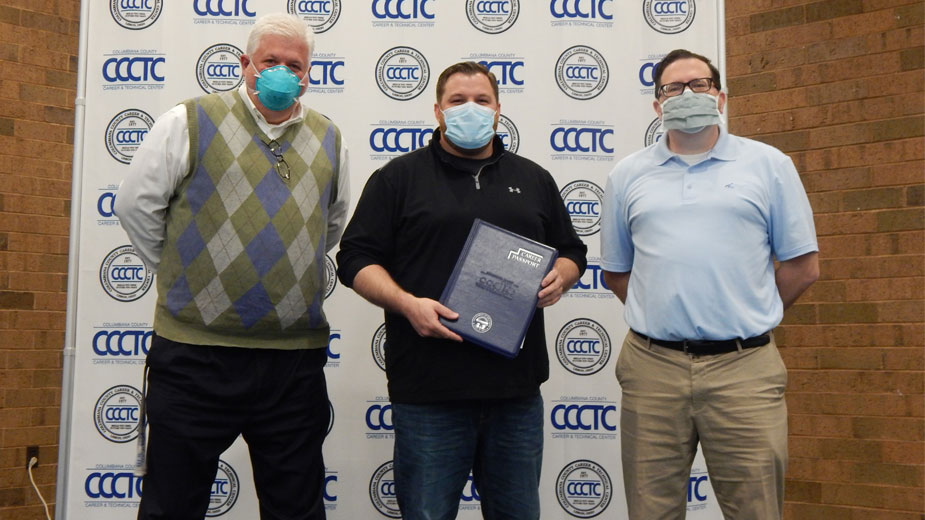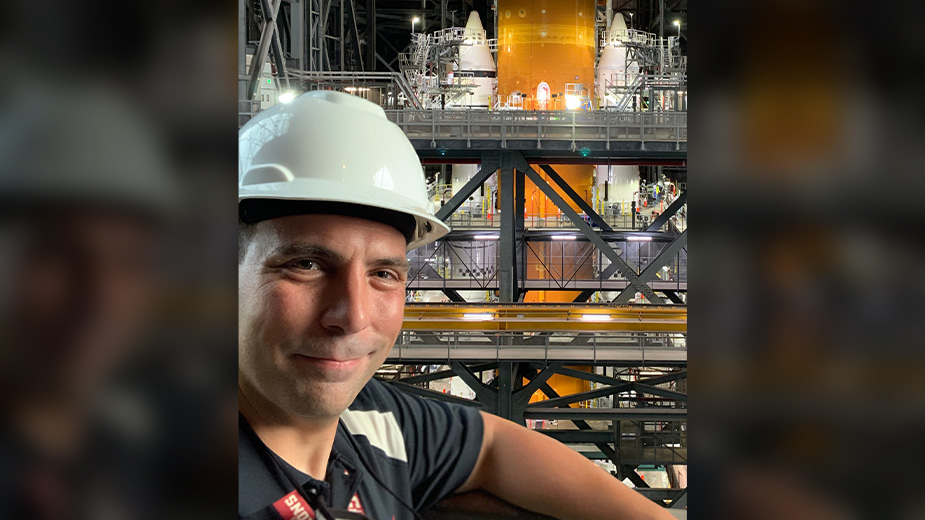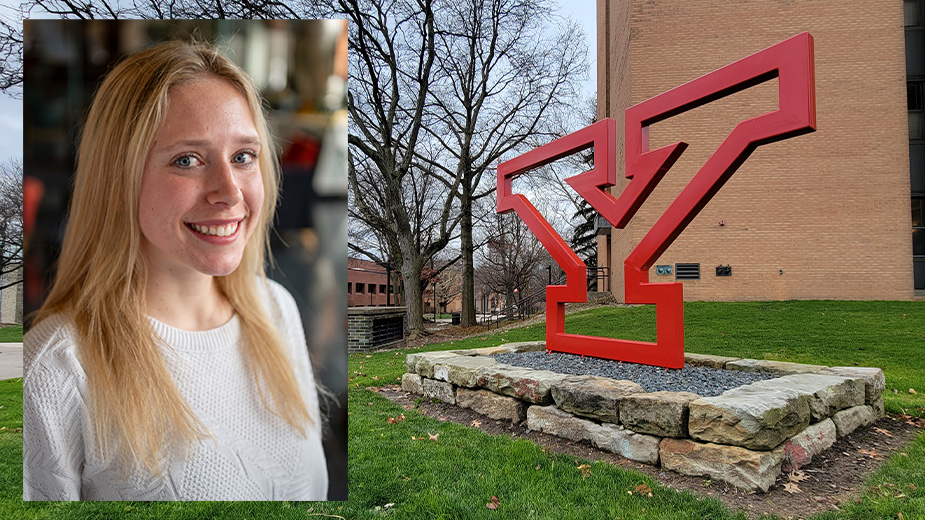Hands-On Learning Still Vital at Career and Tech Schools
YOUNGSTOWN, Ohio — Before COVID-19, career and technical schools were enjoying a renaissance of sorts, with vocational education promoted as a way for hands-on learners to receive a valuable education for lucrative careers.
As state governments scale back on their restrictions on businesses, those job opportunities will still be available. However, school closings for the remainder of the academic year have created challenges for some students to attain the credentials they need to work in those jobs.
Remote learning is the primary obstacle facing career and tech schools. Like their academic counterparts, vocational schools closed as a result of the pandemic, beginning March 13 in Pennsylvania and March 17 in Ohio. In April, governors of both states ordered schools to remain closed for the remainder of the school year.
Vocational schools adapted, with many already employing some online learning platforms in the classroom. But while they were able to transition the theory and academic curricula to remote learning, it’s the hands-on education that students are missing.
“One of the biggest impacts is how devastating this was to the students that thrived in that hands-on environment,” says Paula Baco, program and guidance supervisor at Trumbull Career & Technical Center. “They came specifically because they were passionate about a particular field. Now, in a sense, they’re doing more theoretical work and not being able to put that into practice.”
If there’s a silver lining, it’s that COVID-19 – the disease spread by the coronavirus – hit near the end of the school year, says Jason Gray, superintendent at TCTC. Students there have had hands-on learning since Day 1, so many of them already have earned some certifications that will allow them to graduate and apply for jobs.
Students in the welding program, for instance, have earned their core certifications, as have nursing students who earned their State Tested Nurse Assistant certifications, Gray says.
About 65% to 75% of students at the Columbiana County Career and Technical Center have also earned their credentials, reports Assistant Superintendent Jeremy Corbisello, including students in welding, precision machining, and landscaping and environmental design programs.
Some programs, however, require capstone projects or final exams that require students to be in the bricks-and-mortar schools. CCCTC has worked with some students, who have presented their capstones virtually by using Zoom video conferencing.
For students who still need to take their final tests, however, vocational schools must find a way to bring them in during the summer or fall, or find a workaround to get them tested and credentialed.
“Test integrity dictates that they can’t take those tests at home,” Corbisello says. “We’re committed to giving every student the opportunity to earn their credentials.”
Schools are working with stakeholders – such as area employers that are open – on providing space for students to take their tests. Some of the industries, such as health care and machine shops, have already employed students.
CCCTC’s manufacturing students were working 20 to 30 hours weekly before the pandemic and “now are working even more,” Corbisello says. Nursing students have been working additional hours in hospice care, caring for patients during the pandemic.
“They’ve shared stories with us that they’ve been there when folks took their last breath because their families, unfortunately, are unable to be there with them,” he says. “So these students are continuing real-world work that is preparing them in environments like they never would have anticipated.”
Social distancing has forced other industries to lay off students and has created obstacles for some students to obtain their credentials to start their job hunts. Administrators say getting those students graduated and credentialed is their No. 1 priority.
Some programs allow for final testing while maintaining social distancing. At the Mahoning County Career & Technical Center, students in the truck and diesel mechanic program can likely finish what they need to get to work, says Superintendent John Zehentbauer. Students earning their firefighter credentials in the public safety program can finish the live-burn portion of their testing at outdoor burn centers, he says.
MCCTC is also considering summer camps with small groups maintaining social distancing, either at the school or at the employer’s, to help students finish their licensing and to take certification tests, he says.
For cosmetology students, MCCTC has provided mannequin heads students can take home to practice. But cosmetology students have very strict hour requirements they must complete with a licensed cosmetologist.
The Ohio Department of Education has worked with institutions that grant credentials and licenses to modify some of the requirements for this year. For instance, as long as cosmetology students have documented their hours online by completing assignments with an instructor, they can count those hours to that requirement, says CCCTC’s Corbisello. However, they still need to go to the state board and sit for the theory and practical test, he notes.
Remote proctoring allows some tests to be taken online for certain programs, says TCTC’s Baco, but others require hands-on execution of the skills. Dental students are in a holding pattern for when the state will reschedule their exam, which is half-written, half-practical application.
“They have to make molds. They have to see patients,” she says. “There’s no way to process any of that, even with the best online simulation.”
“The door’s not closed on them,” adds TCTC’s Gray. “When we are able to bring them in, we will do it. We owe them that.”
Whether schools will be able to open for those exams is the question, and it’s one for which career and tech centers are in need of guidance so they can begin planning. Those guidelines will likely come from state governments, as well as local health departments. But for now, tech schools do not anticipate a return to normal.
“Several ideas are up in the air and we await a decision from Harrisburg, says Leonard Rich, building director at the Lawrence County Career & Technical Center in New Castle, Pa. “I do not believe we will have a conventional return to normal. We may have to schedule portions of the population to come at certain times.”
Rich advocates for a return to school, saying that social distancing and hybrid schedules are unrealistic to ensure students get the vocational education they need. Student performance is better in the bricks-and-mortar environment compared to online, he says.
So in a hybrid model, where students spend part of the week at home with remote learning, “There’s no way that you can advance the curriculum in that type of fashion,” he says.
“Imagine missing a third of the school year and the next year not even having the opportunity to make that up. We have got to get the kids back in school. How are you going to restart the economy with the kids at home?”
The 125 seniors at the Lawrence County Career & Technical Center missed opportunities to complete their National Occupational Competency Testing Institute and National Incident Management System certifications, which test students’ abilities to perform needed skills in a career, Rich says. Others were unable to attain their industry-recognized certifications either, he adds.
Typically, up to 75% of graduates from LCCTC enter the workforce after graduation. Without the credentials they need, some students may be forced to put their job hunt on hold, which many cannot afford to do, Rich says.
More than two-thirds of students in the district qualify for free or reduced lunch. “There’s obviously a wealth gap in the community,” he says. When students were forced to work from home, LCCTC lent 200 Chromebooks and some WiFi hotspots.
“Many of the students contribute to the overall income of the household,” Rich says.
Should schools be permitted to congregate in the fall, LCCTC may be able to provide a redo opportunity for those seniors “and at least give them the opportunity to come back,” he says.
The next school year begins in August, so career schools have some time to see how the pandemic progresses and what guidelines are handed down from state government, says MCCTC’s Zehentbauer. Teachers are beginning to consider what curricula will look like and are discussing possibilities with credentialing agencies and business partners, he says. Each program must be evaluated on its own merits.
MCCTC is a big building with some high-bay labs, Zehentbauer says. Should class sizes be reduced, the rooms can handle eight to 10 students at a time while maintaining social distancing.
“Truly, I think we can get into the facility and social distance and meet the requirements,” he says.
Other administrators feel the same way, but agree they need guidance now so they can start planning.
Any alternative school environment comes at a cost, however, be it social distancing with a blended model, or remaining fully remote – another distinct possibility for next year. For the latter, it would require MCCTC to buy new equipment for certain programs for the students to take home, such as 3D printers or small motors with a set of tools, Zehentbauer says. Schools will also need to source cleaning supplies and personal protective equipment if they can hold classes.
And remote learning requires teachers to be more accessible, which would increase hours for instructors, he says. These added costs raise funding issues for vocational education.
“I could see costs, in some programs, rising as much as 50%,” Zehentbauer says. “That changes the whole funding and budget process.”
Pictured: Curt Kaiser and Jordan Williams, principals at the Columbiana County Career and Technical Center, and CCCTC Assistant Superintendent Jeremy Corbisello prepare for a virtual senior recognition ceremony. Students will be filmed receiving their career passport one at a time from May 18-22.
Copyright 2024 The Business Journal, Youngstown, Ohio.



